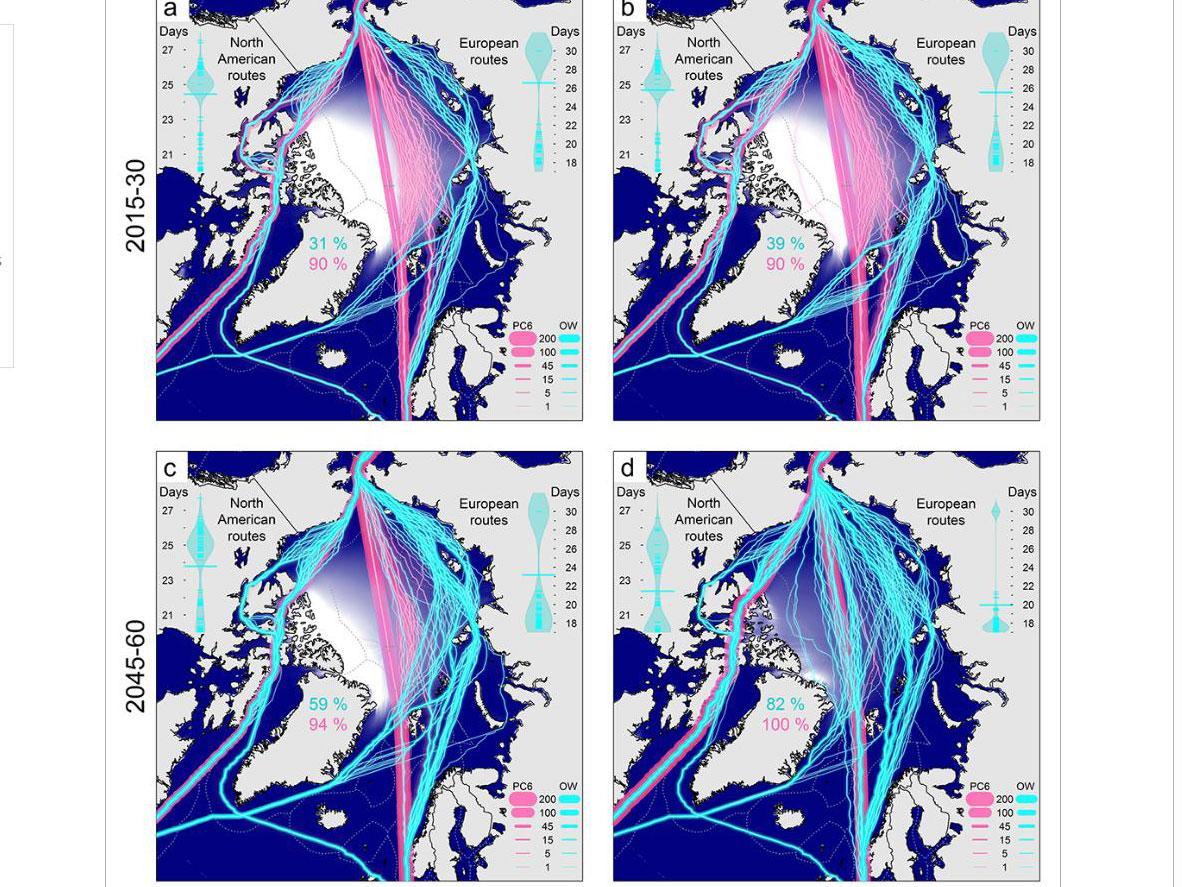Sail from Britain to Japan in 20 days thanks to global warming
'Once just a dream of early explorers such as Roald Amundsen, an Arctic shipping route may soon become a reality'

Your support helps us to tell the story
From reproductive rights to climate change to Big Tech, The Independent is on the ground when the story is developing. Whether it's investigating the financials of Elon Musk's pro-Trump PAC or producing our latest documentary, 'The A Word', which shines a light on the American women fighting for reproductive rights, we know how important it is to parse out the facts from the messaging.
At such a critical moment in US history, we need reporters on the ground. Your donation allows us to keep sending journalists to speak to both sides of the story.
The Independent is trusted by Americans across the entire political spectrum. And unlike many other quality news outlets, we choose not to lock Americans out of our reporting and analysis with paywalls. We believe quality journalism should be available to everyone, paid for by those who can afford it.
Your support makes all the difference.The rapid melting of sea ice in the Arctic is set to open up new shipping routes between the North Atlantic and east Asia, dramatically cutting journey times.
While the pole has been off-limits to most vessels since long before humans were able to voyage across the open ocean, the astonishing rise in temperatures in the Arctic caused by global warming is changing all that.
Scientists expect the region could be almost entirely free of sea ice within the next few decades for the first time in about 100,000 years.
Now researchers have plotted a number of routes from Europe and North America over the top of the world to China and Japan, which are detailed in a paper in the journal Geophysical Research Letters.
Taking an Arctic route from Europe to China is up to 40 per cent shorter than sailing through the Suez Canal.
And that could mean journey times of 18 to 20 days from Rotterdam to Yokohama, instead of at least 30 days through Suez.
Two once impassable Arctic routes are already open – the Northwest Passage, through the Canadian archipelago from the US east coast to Asia, and the Northern Sea Route, along Russia’s northern coast.
But shorter, more direct routes over the North Pole itself are expected to become available as the ice melts over the next few decades.
In an article on the Carbon Brief website, Dr Nathanael Melia, of Reading University, who helped calculate the new routes, wrote: “Ever since the East India Company sailed the high seas in the days of the British Empire, international traders have sought the most cost-effective route between the world’s ports.
“For many, the shortest route between the Atlantic and Pacific oceans would be through the Arctic, yet sea ice provides a formidable deterrent for all but the hardiest ships.
“However, while once just a dream of early explorers such as Roald Amundsen, an Arctic shipping route may soon become a reality. The decline in sea ice cover means there is now serious speculation over commercial trans-Arctic shipping.”
However travelling through the Arctic will still be largely a seasonal activity.
“Our findings reveal that Arctic sea ice will still be present in winter for the majority of the 21st century, implying that Arctic shipping routes will open and close at different times and for different periods each year,” Dr Melia said.
Join our commenting forum
Join thought-provoking conversations, follow other Independent readers and see their replies
Comments